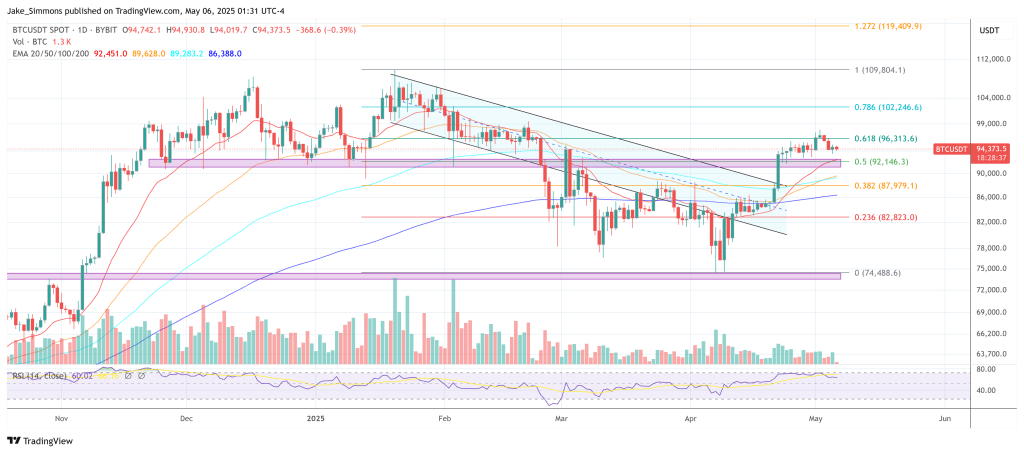CZ’s Million-Dollar Bet: Binance Founder Doubles Down on Bitcoin’s Meteoric Rise
Binance’s ex-CEO Changpeng Zhao drops a bombshell prediction—BTC could smash the $1M barrier this cycle. The crypto kingpin’s forecast comes as institutional FOMO reaches fever pitch.
Why this isn’t your average moon math: CZ’s track record gives weight to the claim, though skeptics note it’d require Wall Street swallowing its pride—and regulatory chokeholds—to make it happen.
The fine print: Even if he’s 90% wrong, we’re still looking at six figures. Not bad for an asset bankers called ’rat poison’ three years ago.
The Catalysts For $1 Million Per Bitcoin
On the first point, the former CEO highlighted the “structurally different bid” created by the US spot exchange-traded funds. “Most of the money in the US is institutional money […] The ETFs are interesting because now we’re bringing traditional institutional money into crypto,” he said. “We’ve already seen the effect—Bitcoin is going up.” While he declined to name allocations he has seen backstage, Zhao stressed that regulated wrappers give pensions and endowments a compliance line they lacked in 2021, transforming Bitcoin from “a trade” into “a treasury allocation.”
Equally significant, in Zhao’s view, is the swift reversal of the US political climate following Donald Trump’s return to the White House. “The US is now 180 degrees from where they were a hundred days ago […] Trump has only been in office for a hundred days and they’re very, very pro-crypto,” he observed. The policy shift is having an externality that Zhao suggested many in the industry underestimate: foreign governments feel newly permitted to accumulate. The other countries will have to follow. So it’s good for crypto. At the same time, I kind of wish all the small guys would buy first,”he said, adding that citizens nevertheless “had fifteen years” to front-run the state.
The third pillar of Zhao’s thesis is the Hegelian jolt provided by negative examples. He pointed to the collapse of FTX and the regulatory purgatory that followed as a catharsis that is now pushing capital toward the one asset that has survived every scandal unblemished. “Anything that deals with fraud, lying, deception has to stop […] Bitcoin has none of that counterparty risk,” he said, contrasting the asset’s deterministic supply schedule with the 13–14 million tokens tracked on CoinMarketCap, “99.999 percent of which will fail.” Meme-coin manias, Zhao admitted with a grin, can be profitable distractions, but “Bitcoin is where the institutions are going, and institutions dwarf the meme crowd.”
Asked whether the institutionalisation of Bitcoin endangers its decentralised ethos, Zhao conceded the philosophical tension—“As an early adopter, you want the government to come in last”—yet argued that fungibility is impartial. “In a decentralised world we don’t control what others do […] we obviously cannot control what governments want to do,” he said. He framed the question less as a dilution of Satoshi’s vision than as proof that the design can absorb adversarial actors and still function.
At press time, BTC traded at $94,373.


